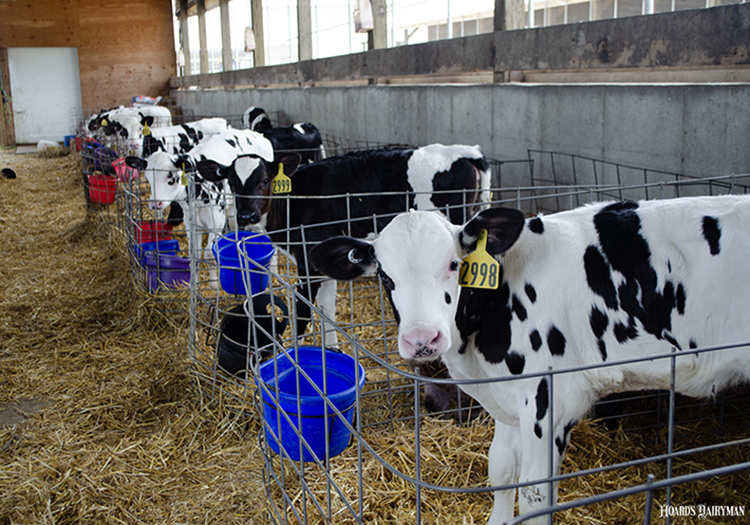
People who purchase calves from other farms to raise put a lot of trust in the source farm. The care those calves receive before and immediately after birth can make a big difference in how successful that calf will be.
University of Guelph professor and veterinarian Dave Renaud talked about factors that play the biggest role in calfhood success when sourcing calves from other farms during his presentation at the Dairy Calf and Heifer Association’s annual meeting.
“You can manage them, feed them right, and give them the right nutrition,” he said, “but probably the most important factor is starting with the right calf.”
A key component is successful passive transfer of immunoglobulins in these animals. “Getting colostrum into calves is absolutely essential,” he stated. “Making sure we get enough immunoglobulins in the calf is critical to help with disease prevention.” In addition, other components in colostrum bolster rumen development and overall calf health.
Body weight of the calves when they arrive at their new home is also an important factor in future success. “Higher body weight calves have lower levels of disease and lower levels of mortality,” Renaud noted.
While greater body weight at arrival does not play much of a role in overall growth rate, he said it is critical in managing disease. Major factors that influence body weight at arrival include birth weight, age of transport, breed, and time of transport.
Time of transport impacts body weight at arrival because calves that must travel long distances to get to their destination are more likely to get sick or die than calves that spent less time in a trailer, Renaud indicated.
Finally, calves that arrive to the farm with no clinical signs of disease are more likely to be successful. In a study by Renaud’s team, health assessments of 5,000 calves arriving at a rearing facility looked for associations that elevated the calves’ risk of dying. Umbilical infections and level of dehydration were two conditions found to raise the mortality rate in affected calves.
Renaud said that calf buyers play an important role in improving overall calf health. Dairy farmers want an outlet to sell calves, so they are eager to keep buyers happy. To do this, dairy farmers want feedback on how well their calves are doing, so he encouraged calf buyers to let them know what’s working and what’s not.
“We need to break down barriers and have more direct communication,” Renaud concluded.








